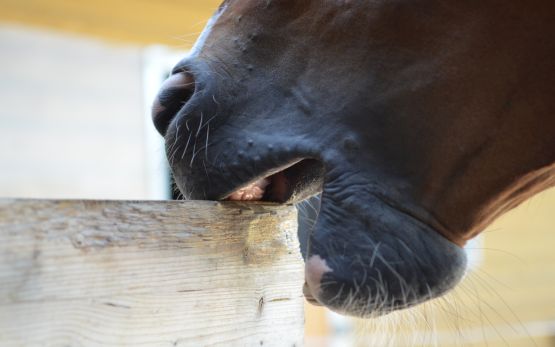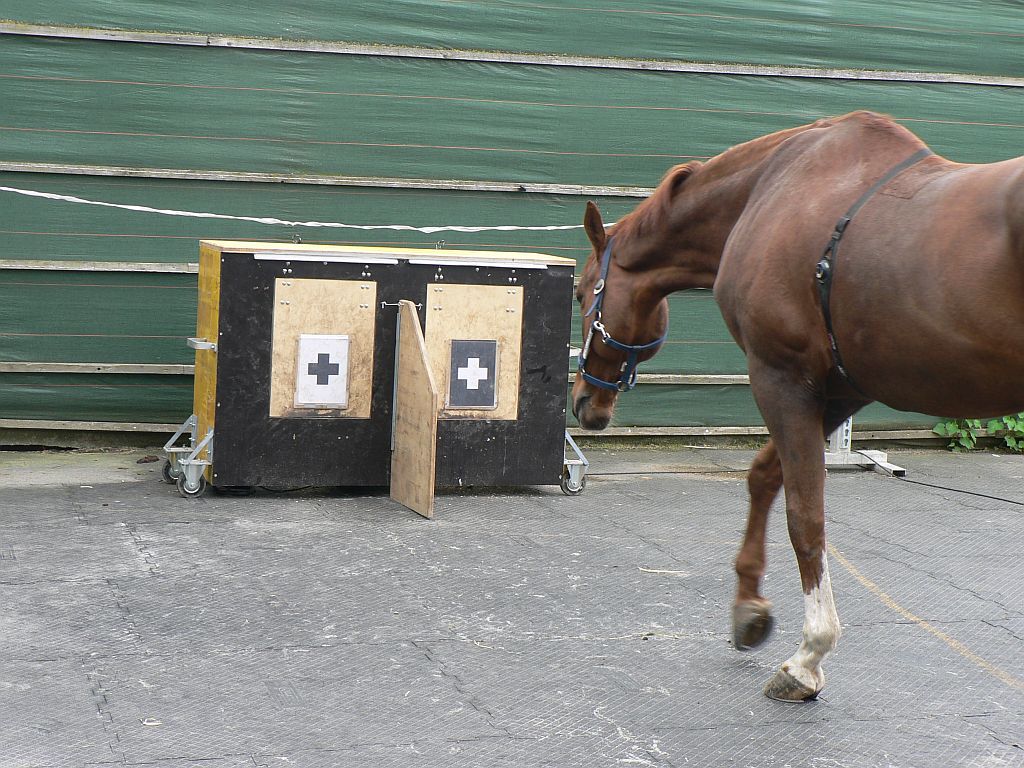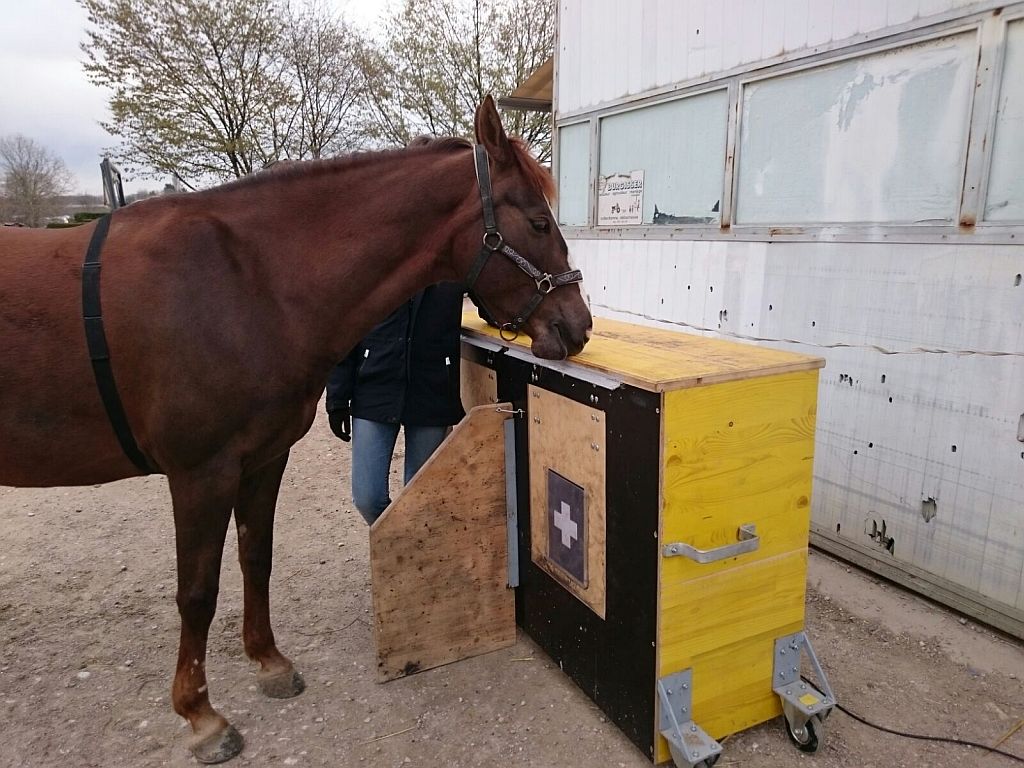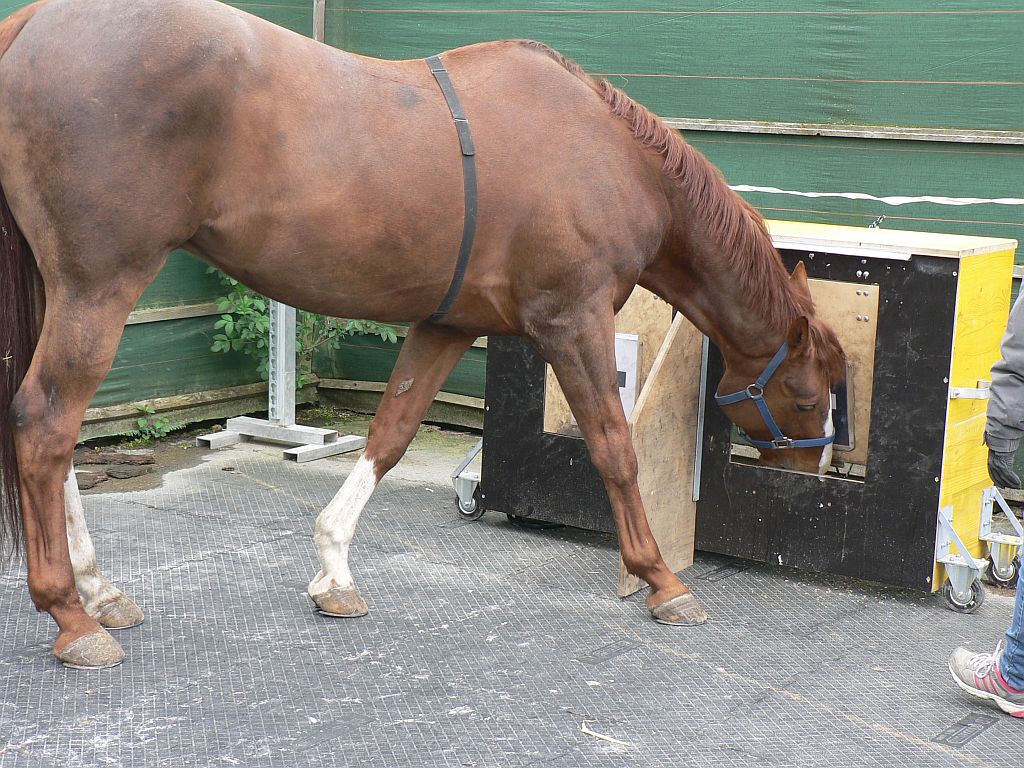Characterisation of Cribbing Horses: Physiology, Personality and Learning Ability
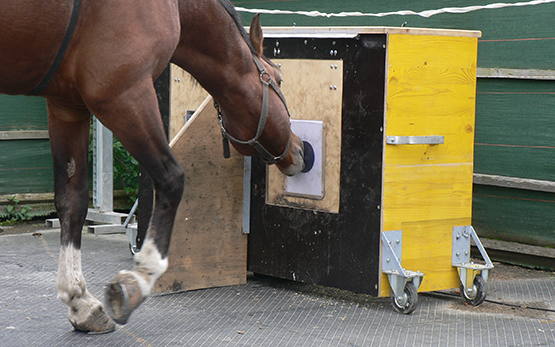
Agroscope’s Swiss National Stud Farm conducted various studies with the aim of characterising cribbing horses.
In an initial study, researchers discovered that cribbing horses were more sensitive to stress than horses without stereotypies, and that cribbing represents a stress-reduction strategy for the former. In a second study, researchers showed that cribbing horses could also master complex learning tasks, learning on their own to distinguish between two symbols of the same shape but different colour. What’s more, they were also able to solve inverse-conclusion exercises. The takeaway from this study is that cribbers are as capable as other horses of carrying out complex tasks provided that stress factors are reduced.
Two further studies are still in progress. These involve comparisons on different levels of the personality profiles and learning ability of cribbing and non-cribbing horses. The results and their publication will follow.
Cribbing Horses Can also Solve Complex Tasks
The video sheds light on a study conducted by the Swiss
National Stud Farm. In it, a Franches-Montagnes horse successfully masters a
complex inverse-conclusion exercise. On the first attempt, the test subject chooses the symbol that was
rewarded in the previous exercises with free access to feed. This time,
however, the flap is locked, and provides no reward. At the next attempt, the
horse chooses the flap with the other symbol, and is given access to the feed.
The horse is able to rethink things quickly, and now remembers the new symbol.
Thereafter it always makes the right choice, and is rewarded for this with
feed.


